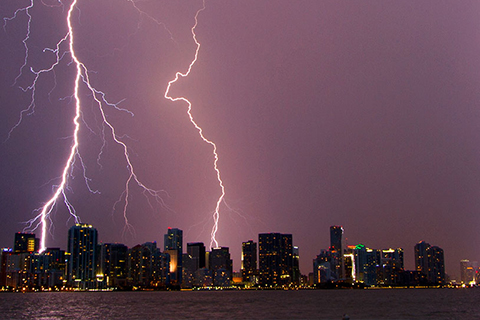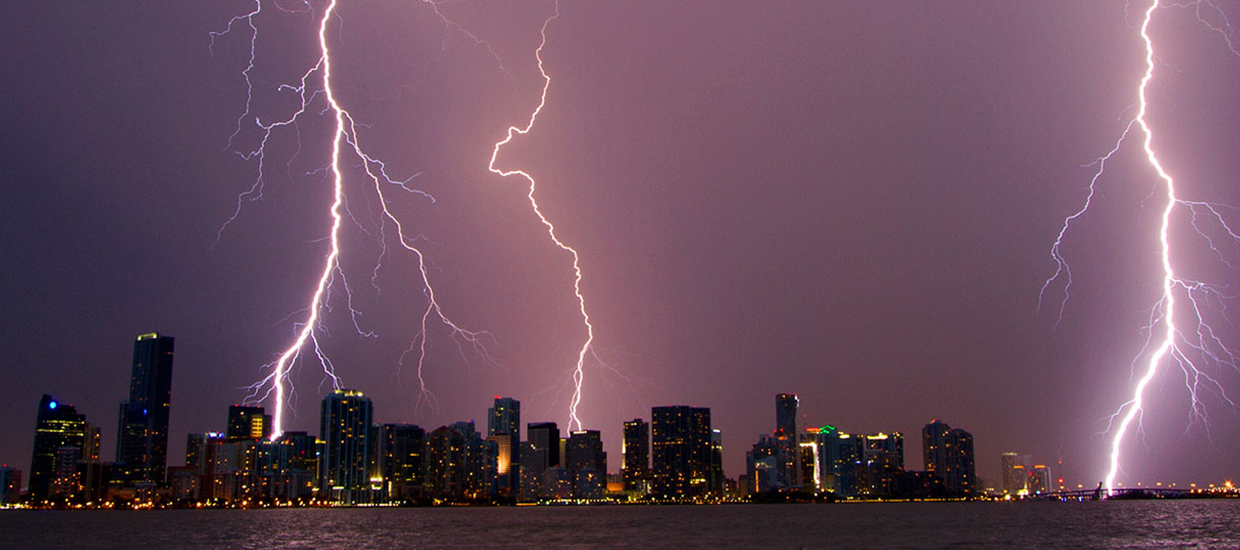Broadcast meteorology is a rapidly growing and evolving field and one of the largest sources of employment in the private sector of meteorology. This track option prepares student for both on-camera and behind-the-scenes careers in broadcast meteorology, as well as the opportunity to develop the knowledge and training necessary to enter the broader field of science journalism. The curriculum integrates graduate coursework in broadcast journalism from UM’s School of Communications, with advanced courses in Meteorology at Rosenstiel School.
Students receive hands-on training in UM’s state-of-the-art digital studio and learn the proper techniques involved in preparing and presenting a complete and professional weathercast. The UMTV studio is fully equipped to deliver professional, on-air graphics with real-time data feeds and visualization software from Weather Central. Students will learn to research, analyze, predict, and then graphically and verbally communicate local and national weather forecasts “on camera”. Students will also learn how to master breaking news, severe weather bulletins, ad-libbing, deadlines, teamwork, and other skills vital to a successful career in broadcasting. Students also participate in UM’s award-winning news broadcast “NewsVision”, which is aired daily on local cable channels to the university and the surrounding community. This enables students to apply their knowledge of journalism and weather forecasting in a TV studio and develop their skills in communication, computer graphics, and on-camera delivery. The coursework is designed to provide students with a solid foundation in both meteorology and broadcast journalism, in order to meet the basic requirements of the AMS Certification for Broadcast Meteorology and also provide students with a greater understanding of the broad environmental issues of the 21st Century.
Broadcast Meteorology (BME)
The MPS in Broadcast Meteorology prepares student for both on-camera and behind-the-scenes careers in broadcast meteorology, as well as the opportunity to develop the knowledge and training necessary to enter the broader field of science journalism. Please see our departmental website for more information about this program.
Program Requirements






